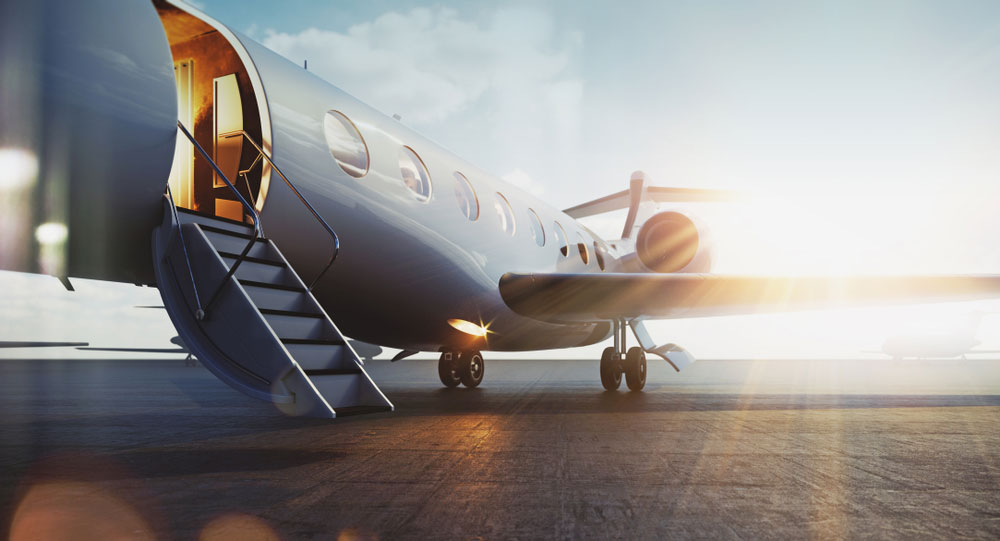Flying a private aircraft gives you unparalleled freedom and adventure. However, this liberty comes with the immense responsibility of ensuring safety at every stage of your flight. As a pilot, safety and responsibility should always be priorities. Here’s a comprehensive guide to help you take to the skies while maintaining the highest standards of flight safety.
Pre-Flight Checklist
Begin every flight with thorough preparation on the ground. Before departing:
- Conduct a detailed inspection of your aircraft to ensure it’s airworthy and free of any maintenance issues.
- Check current weather forecasts and adjust your flight plans accordingly.
- Ensure all necessary charts and airport diagrams are up to date and readily available.
- Review emergency procedures to prepare yourself for worst-case scenarios.
- Ask your passengers to help you eliminate distractions by keeping conversation to a minimum, reinforcing the concept of a “sterile cockpit” during takeoff and landing.
Staying Sharp and Informed
Private pilots should be willing to stay abreast of the latest aviation regulations and safety practices. Regularly participate in:
- Aviation safety seminars and other educational opportunities
- Ongoing training and proficiency checks to keep your flying skills sharp
- Additional refresher courses as needed, particularly if you’re planning to fly in challenging conditions or unfamiliar airspace
Self-Awareness in the Cockpit
Always be honest with yourself and others about your flying capabilities and avoid conditions that exceed your training and experience. Postpone or cancel flights if you don’t feel physically or mentally up to the task. Remember, trusting your instincts often leads to more prudent decisions, which can save lives.
Mindfulness is critical when flying a private aircraft. Use the IMSAFE acronym to assess your fitness to fly.
- Illness: It’s prudent to stay grounded if you feel sick. The physical demands of flying can exacerbate symptoms like blocked sinuses, headaches, or stomach issues, especially during solo flights.
- Medication: Pilots who consume any prescription or OTC medications from the FAA’s banned list must avoid flying until an appropriate waiting period has passed.
- Stress: Evaluate your stress levels before flying. High stress can lead to physical symptoms such as increased heart rate and blood pressure, which might compromise your ability to concentrate and safely pilot an aircraft.
- Alcohol: FAA regulations prohibit flying with a blood alcohol content higher than 0.04%, or within eight hours (more conservatively, 24 hours) of consuming alcohol. Even if you are within the legal limits, consider how the residual aftereffects of drinking might impair your reaction time and decision-making abilities.
- Fatigue: Fatigue significantly affects your ability to safely control an aircraft. Reflect on your recent sleep quality and overall energy levels. Do not fly if you feel weary, even if you need to adjust your schedule.
- Emotion: Your emotional health is as crucial as your physical health. Complex feelings like anger, grief, or anxiety can cloud your judgment and distract you during flight. Achieve a calm, clear state of mind before takeoff.
Situational Awareness and Effective Communication
Constant vigilance is essential for identifying and mitigating in-flight risks. Watch for weather updates and airspace changes, and proactively recognize and address potential mechanical issues or abnormal system readings.
Communication with air traffic control and fellow pilots must be unambiguous and precise. Use standard aviation communication protocols and terminology and comply with air traffic control’s instructions, especially in busy airspace.
Aviation Insurance: Your Safety Net
Private aviation is a rewarding experience that demands rigorous adherence to safety practices. Following these guidelines and continuously striving to improve your knowledge and skills will create the safest experience for you, your passengers, and your private aircraft.
Aviation insurance coverage protects you from potential financial liabilities arising from accidents. A tailored policy will give you peace of mind, allowing you to focus solely on the joy of flying. Trust the Ingram Aviation Insurance team to analyze your risk and develop a comprehensive plan that empowers you to soar to new heights. Contact us today for your complimentary consultation.

